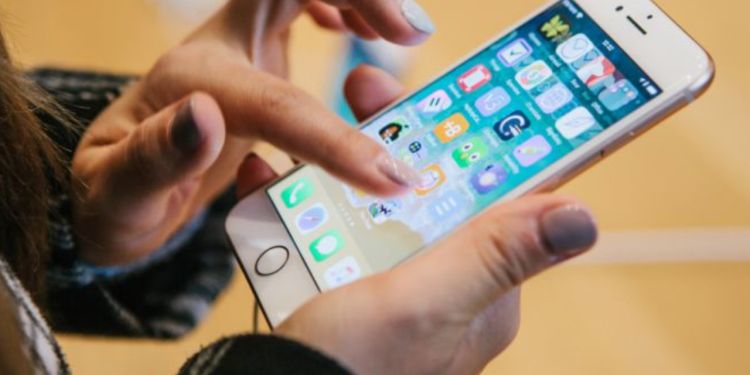
Thanks to instant messaging services such as Skype, WhatsApp, Messenger, Viber, and Telegram, calling landlines and mobile phone numbers is mainly done for work or to reach a public or private service. In any case, telecommunications prevail in all aspects of our lives, and the mobile phone is the ultimate demonstration of our connectivity with the world.
If you are moving to Germany from another European Union country, most likely, you will be able to use your home country's mobile service provider without roaming charges. However, if you arrive in Germany from outside the EU, you will definitely need a good mobile phone provider to stay connected with family and friends.
Setting up a telephone landline in Germany
If you plan to stay for a longer time in Germany and need a stable internet connection, there are several good internet providers to choose from. You can find out more about expanding the internet in Germany in our dedicated article. For a landline, most likely you will have to research the same providers, as they offer internet and landline packages to which you can also add TV and mobile phone services. In other words, pure landline providers hardly exist nowadays. Hence, check with 1&1, o2, Vodafone, and Deutsche Telekom, and enquire about rates, services, and length of contracts. The high competition among providers means that the quality of customer service is high, and prices are affordable. To help yourself make up your mind, you can use one of the comparison websites, such as Check24.
If your home is already equipped with a landline, a new installation will not be required. In this case, try to provide the phone number and the name of the previous tenant. Most of the lines are owned by Deutsche Telekom, so you will have to check with the provider of your choice if your line is covered by their services and what steps are necessary to get connected again. Once all technical requirements are met, you can register. You will have to fill in a subscription form and provide identification documents and proof of address. The installation and activation may take up to 14 business days. Once your landline has been installed, you will receive the phone bill on a monthly basis. You are required to settle the bill within two weeks from the date of issuance; otherwise, your landline will be disconnected, and fees will apply to reconnect. Authorization for payment by direct debit (Einzugsermächtigung) is the most common payment method in Germany for bills.
Useful links:
Answering the phone in Germany
In general, local and international calls in Germany are charged per minute. Call rates vary according to the distance and call duration. Calls made between 6 pm and 9 am, as well as those made during holidays and weekends, may be cheaper. Regarding international calls, you can inquire about rates with your operator. Many internet providers offer upgrade packages for international calls at a flat rate. When calling someone in Germany, your contact will generally respond by saying his name immediately. In some cases, you may hear a pre-recorded message, such as "Kein Anschluss unter dieser Nummer" meaning "The number you have called does not exist" or "Dieser Anschluss ist vorübergehend nicht erreichbar" meaning "The number you requested is temporarily unavailable".
German phone number codes
Make sure you have a phone directory nearby before making calls. Note that the German prefixes are quite complex, especially for newcomers. Thus, to make calls in the region where you have settled, you simply have to dial your contact's phone number. To call another region, dial the area code followed by the phone number. The length of area codes varies — codes are shorter for large cities and longer for smaller cities. For example, 030 for Berlin or 0341 for Leipzig. If you call from abroad, you will have to skip the first “0” and add Germany's country code (0049), for instance, 0049 30, followed by the local telephone number in Berlin.
Mobile phones in Germany
Mobile phones are called Handys in German and are widely used with generally good coverage. German operators use GSM technology (900 or 1800MHz), which is used across Europe. There is no roaming in the European Union, so you can freely use your European number in Germany. If you come from outside of Europe, make sure your phone is compatible. Phones from Australia and New Zealand should not be a problem as they usually operate on the GSM spectrum, and phones from the US or Canada that are at least tri-band or quad-band should also work. Otherwise, you may have to buy a new mobile phone and a SIM card.
When purchasing a new sim card, you can choose between subscription and prepaid. If you prefer a prepaid sim card, you will be able to recharge your balance through prepaid cards, which are available in all supermarkets, shops, filling stations, and corner shops. The prepaid cards are offered by all operators but can also be bought in supermarket stores such as EDEKA, REWE, and ALDI. These are easy to purchase, and their activation is online but in the German language only, so be prepared to ask for help if needed. If you want to recharge them, you can buy an online voucher or a coupon at the supermarket.
Warning:
Make sure to check the local coverage in your area, especially outside big cities. Telekom and Vodafone are known for better coverage. However, O2 may be a cheaper option.
Good to know:
Basic packages generally include 50 to 200 minutes of free talk-time / SMS units and 500MB to 1GB of data volume, starting from €6 per month. Also, many providers offer subscriptions with one-month minimum commitments and can be canceled at reasonably short notice. Many people opt for a contract phone, which works out more expensive per month, but you're also contributing to a new phone, which is usually yours after 2 years.
Useful links:
We do our best to provide accurate and up to date information. However, if you have noticed any inaccuracies in this article, please let us know in the comments section below.












Comments